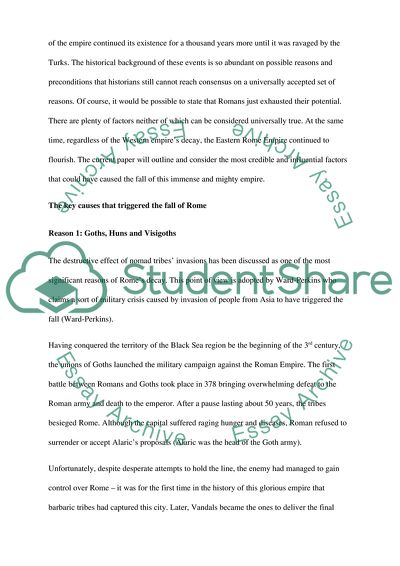Cite this document
(“The Fall of Rome Research Paper Example | Topics and Well Written Essays - 2000 words”, n.d.)
Retrieved from https://studentshare.org/history/1656044-the-fall-of-rome
Retrieved from https://studentshare.org/history/1656044-the-fall-of-rome
(The Fall of Rome Research Paper Example | Topics and Well Written Essays - 2000 Words)
https://studentshare.org/history/1656044-the-fall-of-rome.
https://studentshare.org/history/1656044-the-fall-of-rome.
“The Fall of Rome Research Paper Example | Topics and Well Written Essays - 2000 Words”, n.d. https://studentshare.org/history/1656044-the-fall-of-rome.


